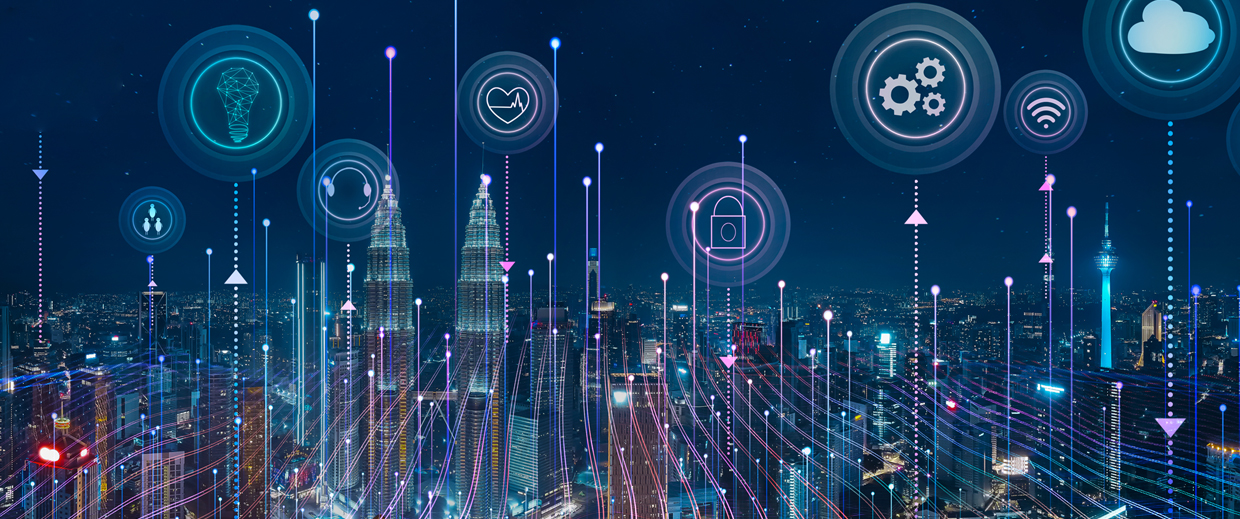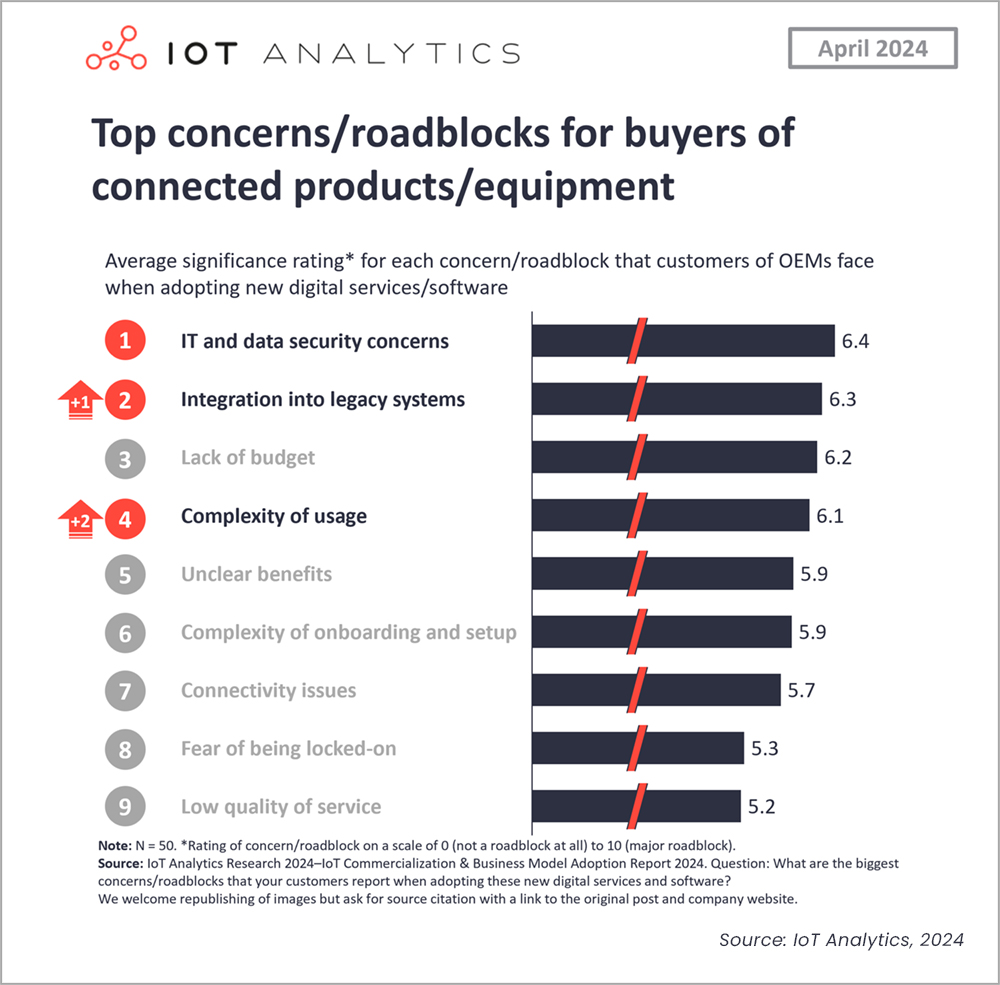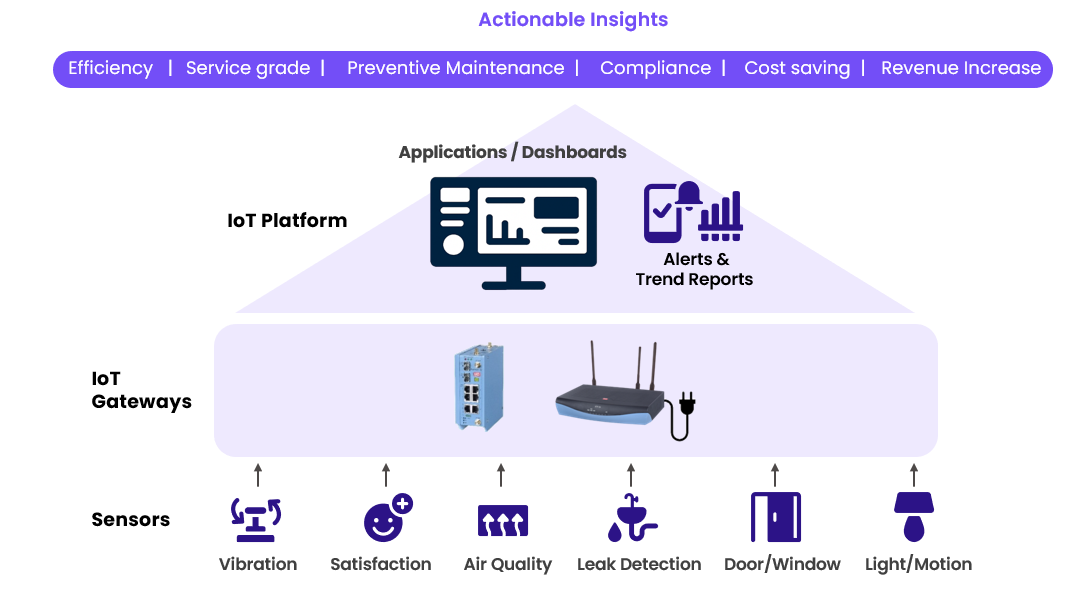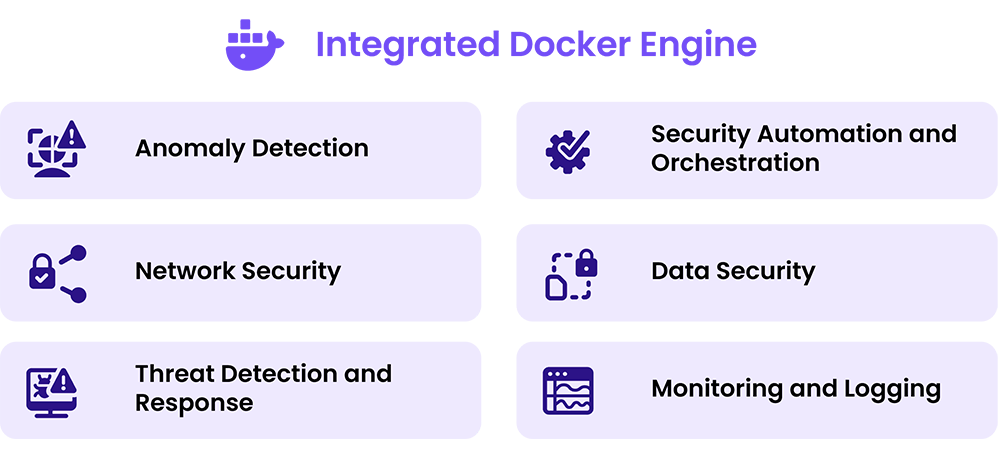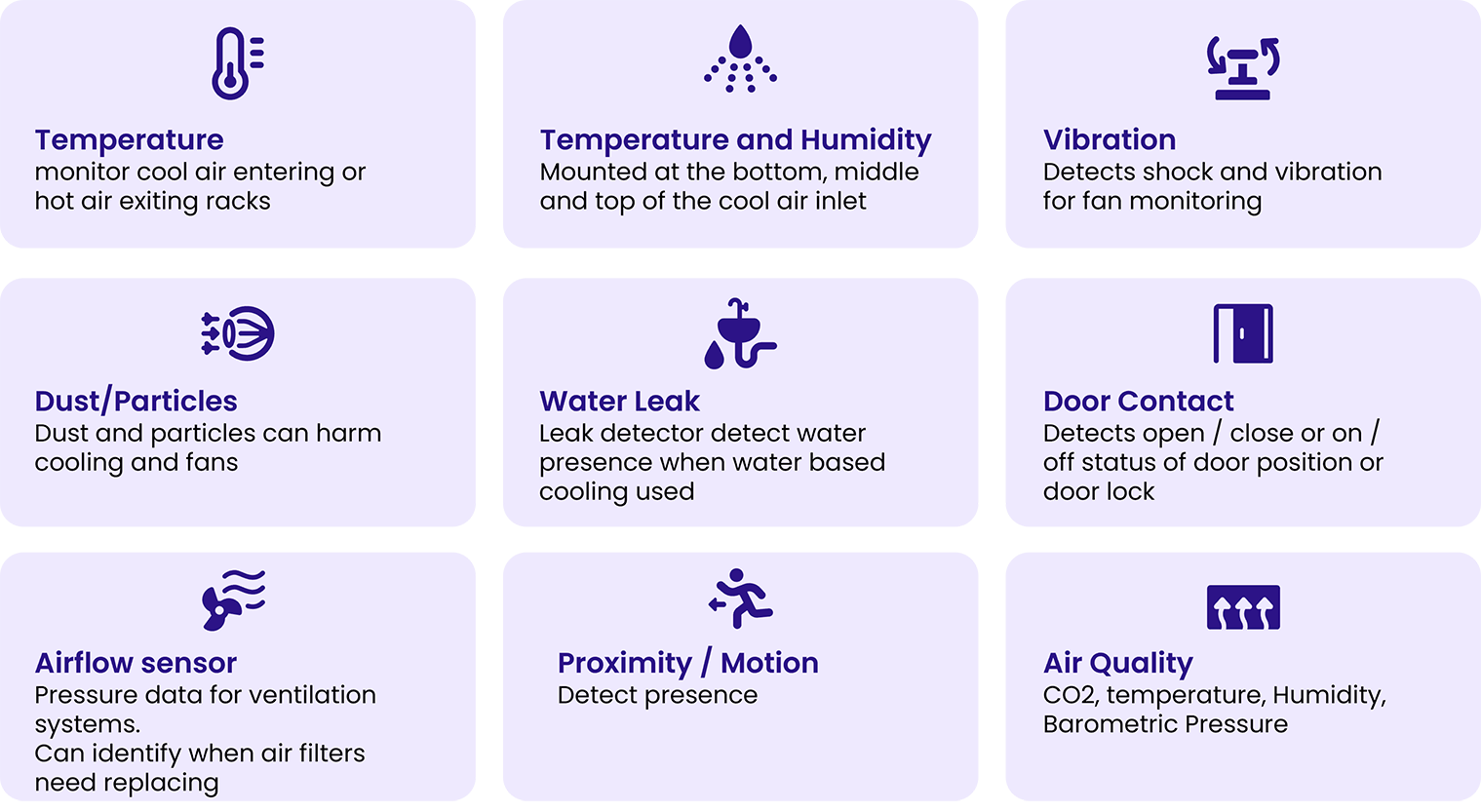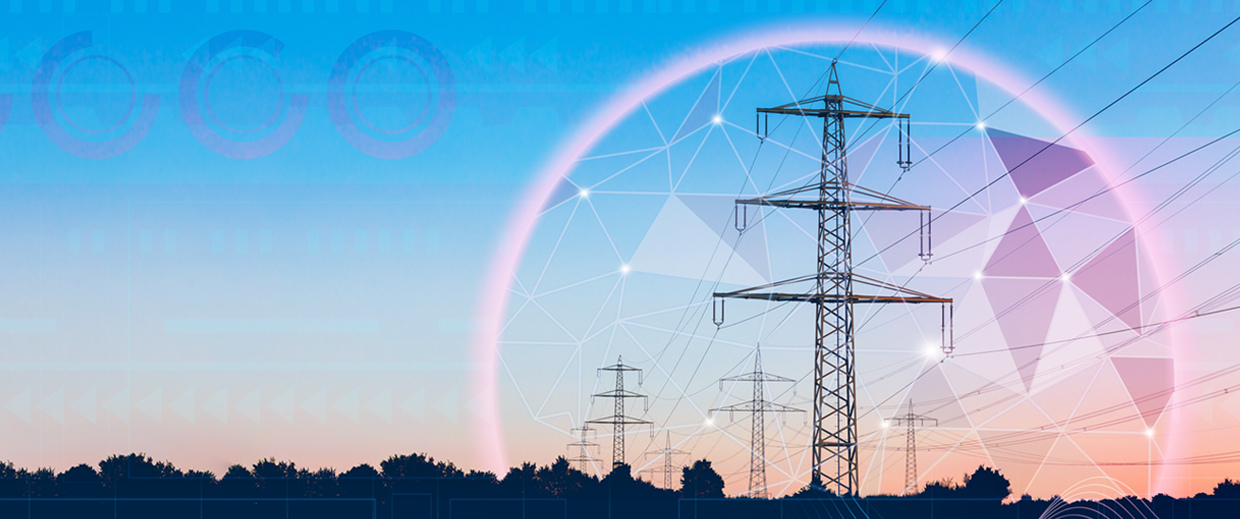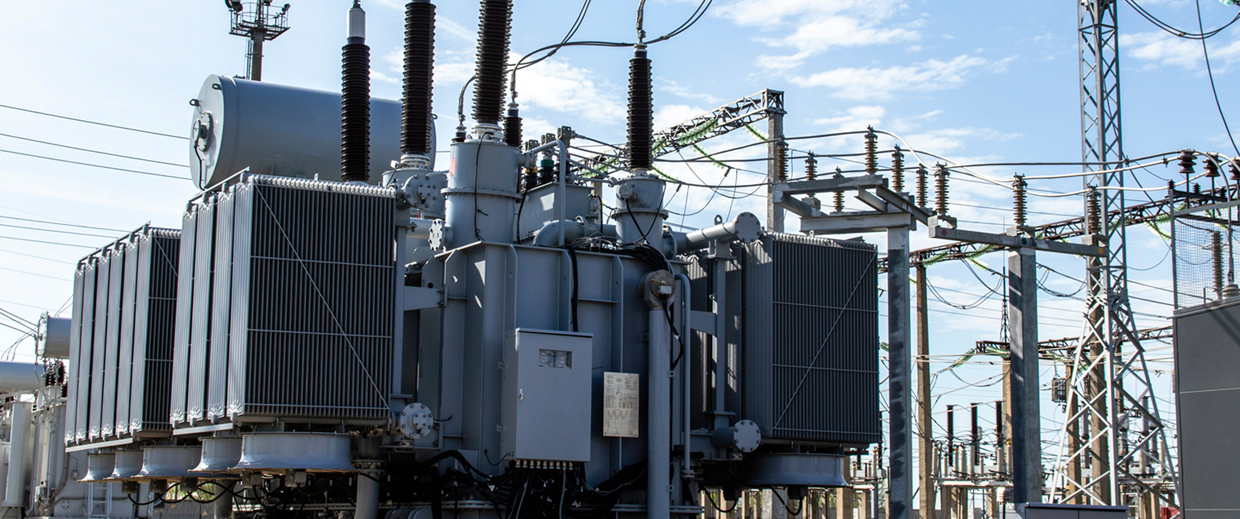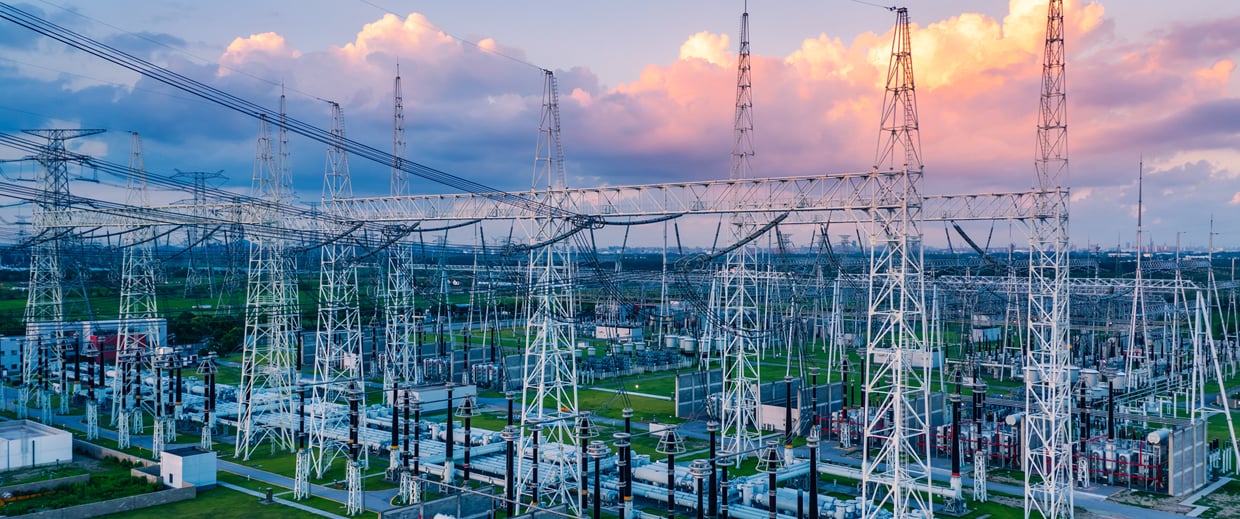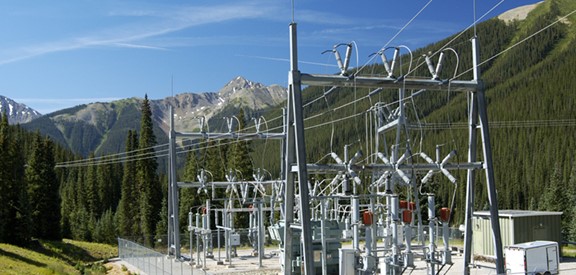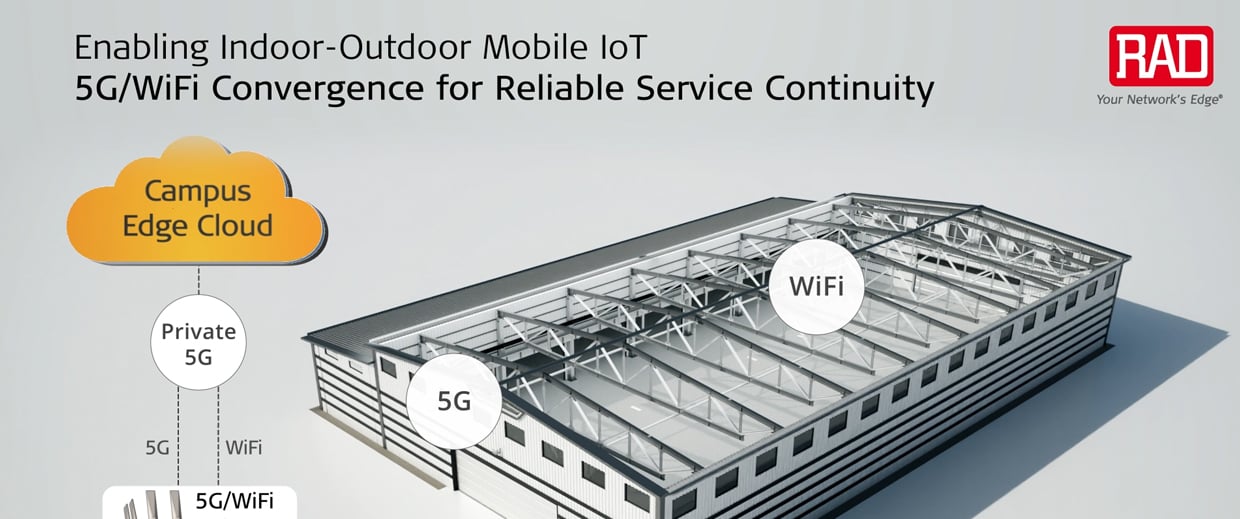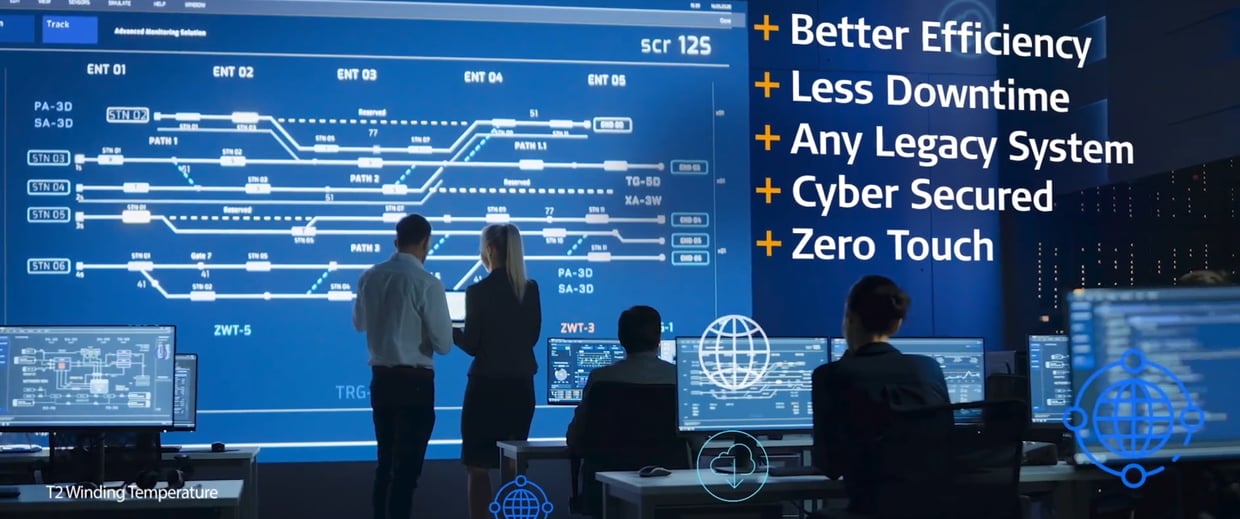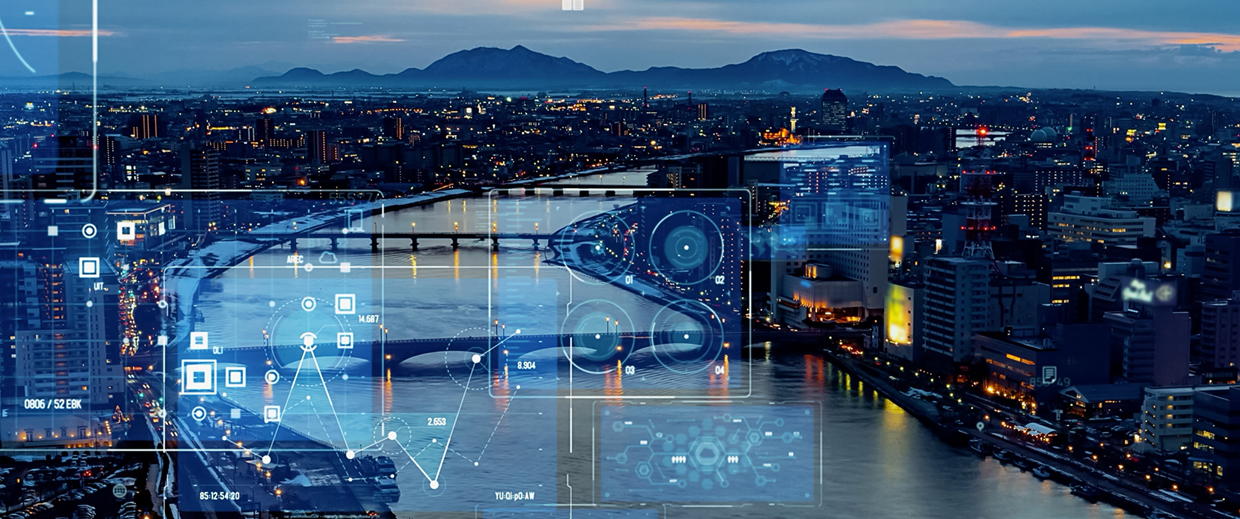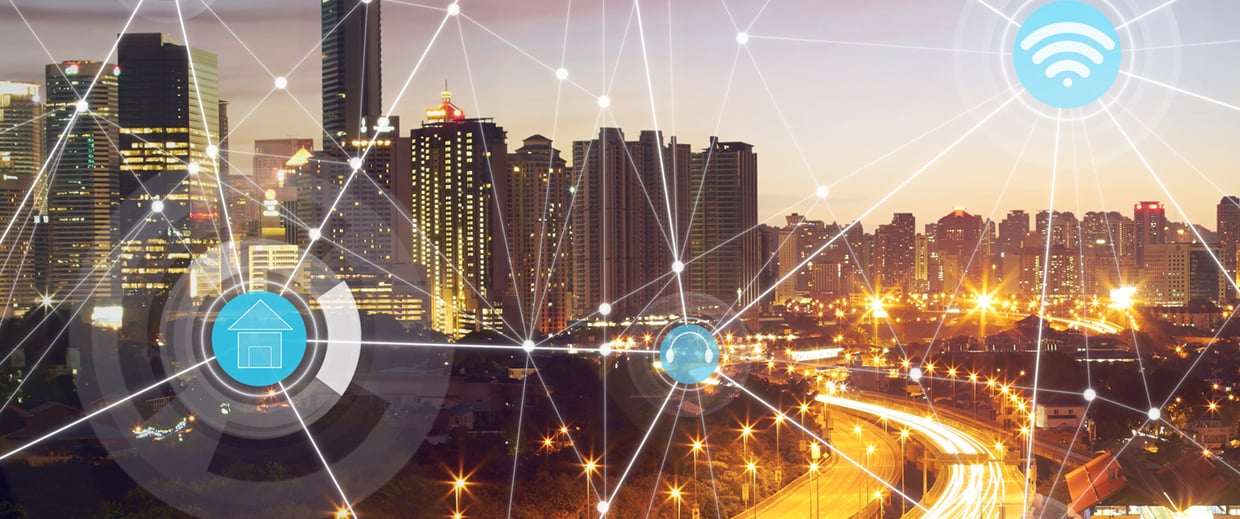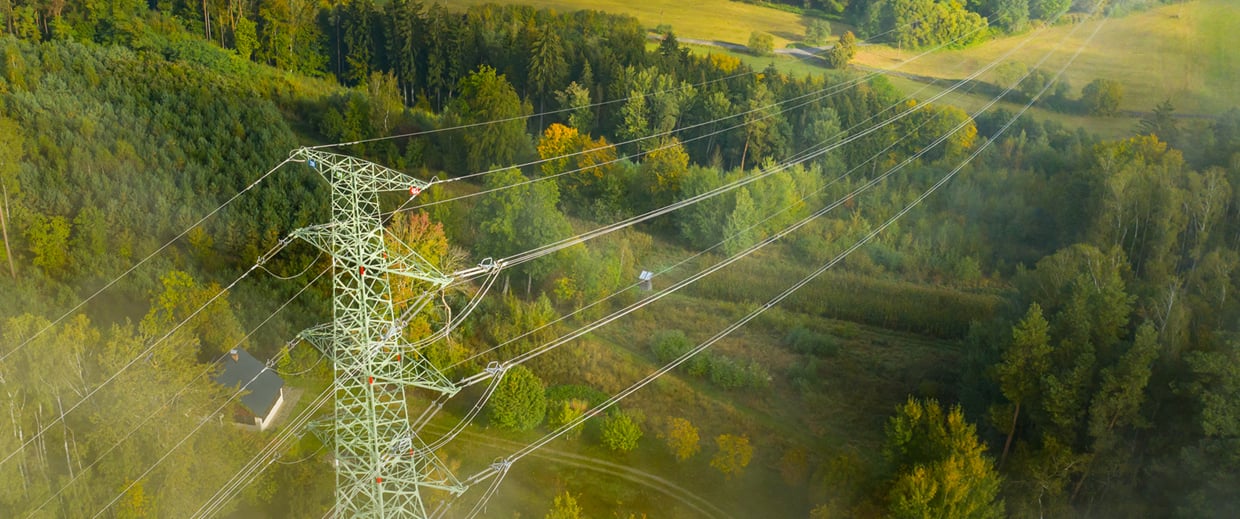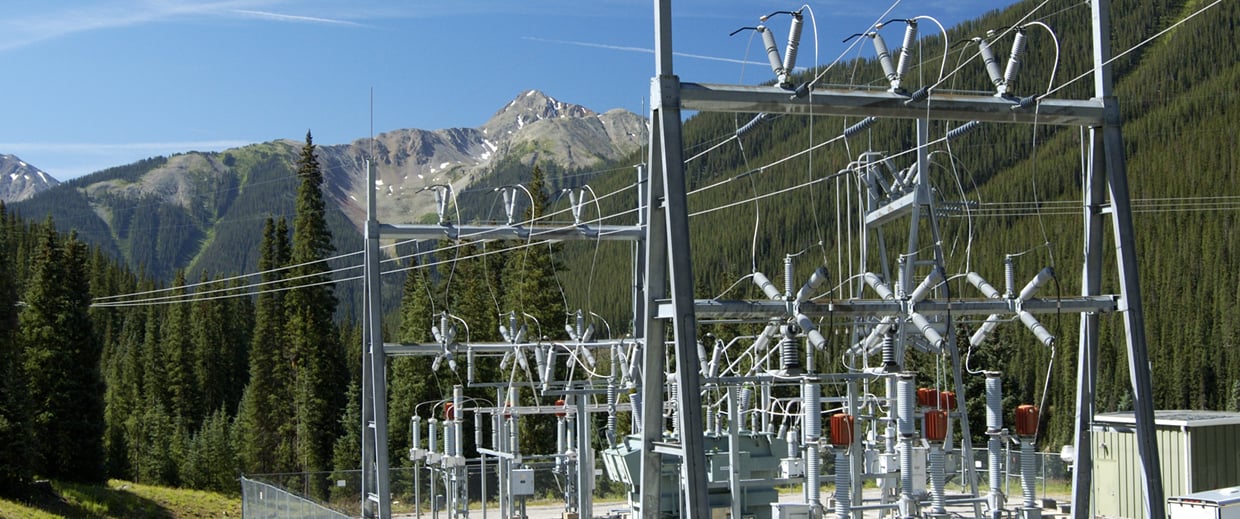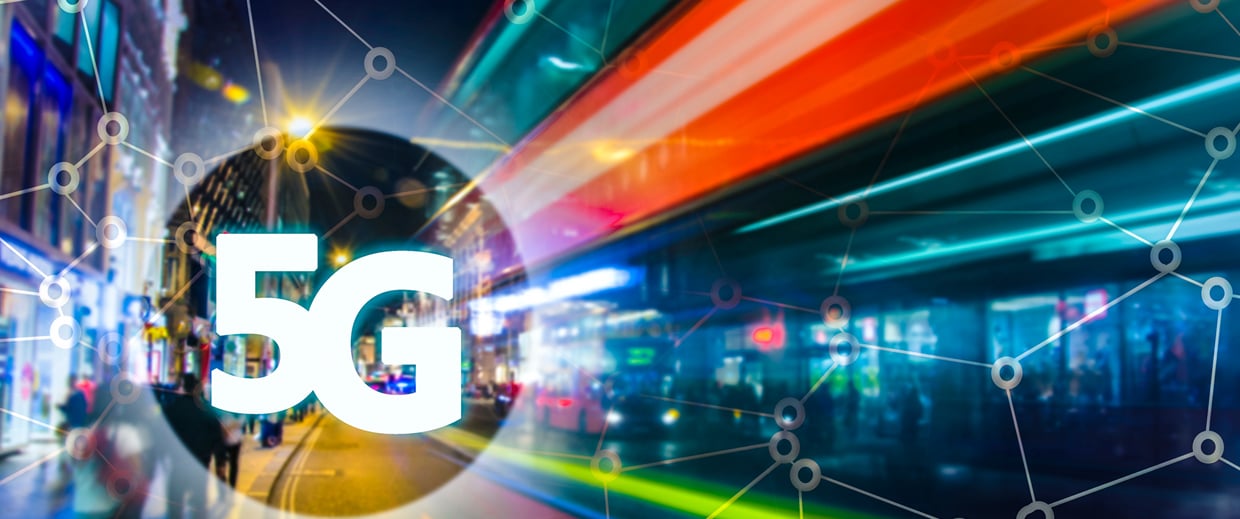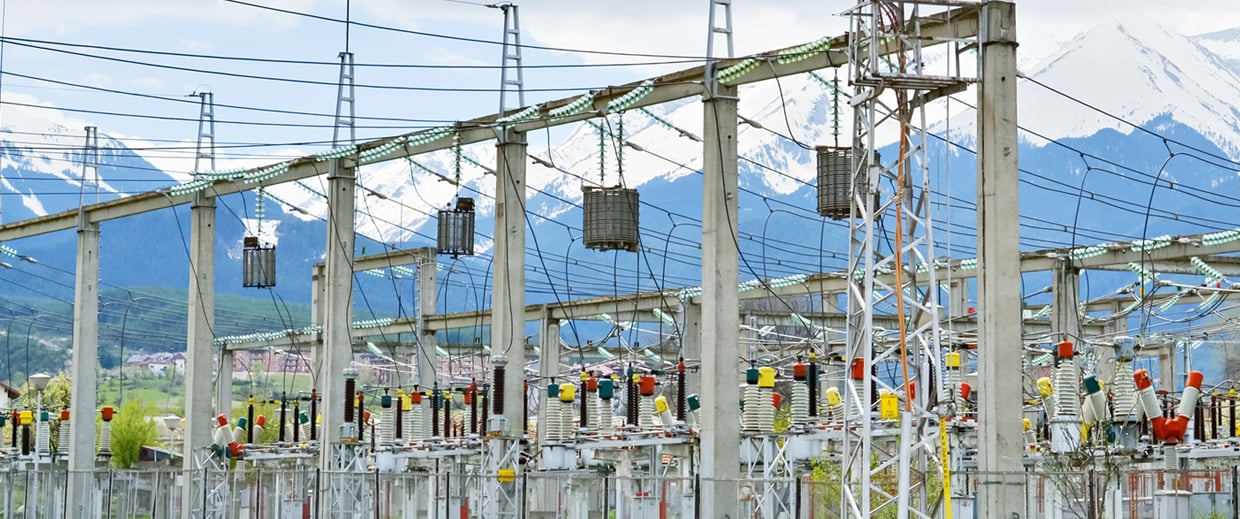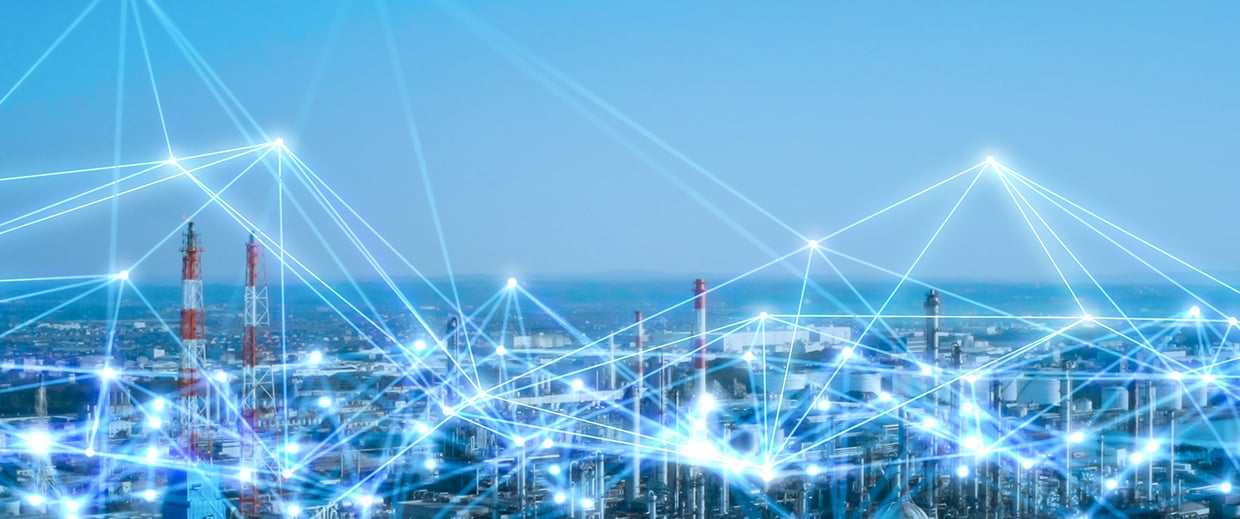Easily deploy and manage IoT services with edge computing for real-time asset monitoring, enabling user-tailored applications, secure connectivity, and seamless communication over any network.
IoT Remote Monitoring for Asset Management
IoT-enabled monitoring has gained a critical role in complex, large-scale environments. By enhancing visibility and providing timely data and proactive alerts, relevant IoT solutions help operators anticipate issues before they escalate to increase efficiency and reduce costs.
IoT Project and Service Drivers
IoT projects and services today are typically driven by the four main factors:
Data Analytics and Insights: Smart IoT devices collect a large volume of real-time data. The demand for actionable insights from this data is a major driver for IoT adoption, enabling businesses to optimize processes, make informed decisions, and predict trends.
Automation and Operational Efficiency: IoT enables automation in various sectors, reducing the need for manual intervention and improving operational efficiency. This is particularly valuable in industries like manufacturing, logistics, and agriculture, where automated monitoring and adjustments can streamline workflows.
Predictive Maintenance: IoT can lower costs by preventing breakdowns (for example, by using predictive maintenance), reducing waste, and improving resource allocation. These savings create a strong incentive for businesses to invest in IoT infrastructure.
Security & Compliance: As everything becomes more connected, various end devices and systems become more vulnerable to security breaches and the attack plan grows exponentially. Data security and integrity is a key driver in launching new IoT projects. In addition, IoT can help with implementing automated and remote monitoring processes, to ensure compliance with state or corporate issued rules and regulations.
Technology Advancements in IoT Connectivity
New IoT connectivity options, such as via satellite, provide much needed flexibility. Low power, wide area (LPWA) networking technologies, and specifically LoRa (long range) are booming now, as they allow the connection of a large scale of battery-operated sensors without wiring.
Private 5G and LTE enable to simplify – and speed up – deployments and the growing number of spectrum initiatives, such as Anterix and CBRS in North America, the 450 MHz Alliance in Europe, and more, drive adoption forward, especially in the power utilities sector.
Explore more about RAD’s IoT deployments solutions for Private 4G & 5G.
The New Challenge in IoT Deployments
According to an IoT Analytics report, even with the above drivers, survey respondents found IoT deployments to be too complex, primarily for the following reasons:
- IT and security concerns
- Integration into legacy systems
- Complexity of usage
- Complex on-boarding
RAD’s End-to-End Smart IoT Solutions
To address the above concerns, RAD is offering complete, end-to-end solutions for IoT deployments. These solutions integrate many of the new technologies mentioned earlier.
Smart Business IoT
RAD’s solution includes smart sensors to monitor temperature, humidity, movement and other conditions, as well as indoor or outdoor IoT gateways for connectivity and data transmission together with Edge Computing, and an IoT platform for data collection, analysis, and display. Reports and alerts can be accessed remotely using a smartphone or tablet.
Such a combination offers valuable benefits:
- Effortless Onboarding: Pre-configured sensors, gateways, and an intuitive platform allow low investment and easy deployment with minimal technical expertise required.
- Seamless Integration: The sensors, gateways, and IoT platform work seamlessly together.
- Pre-Configured Dashboards & Alerts: Users gain immediate insights into asset health with intuitive dashboards and automated alerts for critical events.
- AI-Powered Optimization: AI-powered analytics translate data into actionable insights for predictive maintenance, optimized energy usage, and customer behavior analysis.
- Scalability and Customization: The solution can be easily adapted to meet new use cases and business needs.
Smart Industrial IoT
This solution has clear benefits for data centers, power transmission lines, mobile cell sites, smart city deployments, connected industry (Industry 4.0) and any other sector or organization that relies on critical infrastructure. These leverage IoT technologies to identify inefficiencies, reduce downtime, and maintain a competitive edge. Ultimately, the ability to monitor and optimize these systems in real-time sets a new standard for operational excellence. RAD’s Smart Industrial IoT solution also includes relevant sensors, gateway/s and an IoT platform, however, in this case there’s also a need for a Docker-based intelligent edge container, as well as edge support for industrial-specific protocols and traffic, such as LoRa, ModBus, SNMP, and video. In addition to asset management, the solution enables space and incident management. Since these use cases are more complex, they typically require RAD’s professional services support to plan and implement. In addition to operational efficiency, predictive maintenance, data analytics and AI-based insights, RAD’s solution ensures secure data transmission and storage, as data security is paramount.
IoT Security
RAD’s SecFlow IoT gateway, which connects the in-field sensors to the IoT platform, meets the industry’s highest cybersecurity standards and supports the following capabilities:
- Access Control/Firewall/Certificates
- Minimal privileges for services and apps
- Micro-service architecture
- Blocking any access to ROOT
- Data encryption services
It also features future-proof cybersecurity:
Remote Data Center Monitoring
RAD’s end-to-end IoT solution is ideal for distributed edge data centers: Small, decentralized computing facilities that are located closer to end-users and devices, i.e., to where the data is used. This proximity reduces latency, improves bandwidth efficiency, and enhances the performance of applications that require real-time data processing.
These self-contained edge data centers are typically unmanned and consist of a few server racks, cooling systems, power supplies, and security features. Since they often operate in diverse environments, environmental factors like temperature fluctuations and humidity must be monitored. These are the monitoring needs of data centers:
RAD’s Smart IoT solution for data centers ensures that the data center runs smoothly, with real-time monitoring, proactive maintenance, and enhanced security, all while reducing operational costs and improving overall efficiency. It’s the future of data center management—intelligent, scalable, and reliable.
